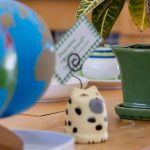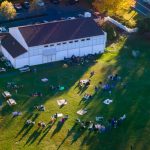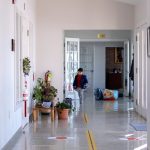Dr. Maria Montessori’s method of education was designed to assist children in their development from birth to maturity. The Cobb School is proof of the viability of Dr. Montessori’s vision. The beautifully prepared environments are enriched with a broad array of Montessori materials and activities. The teachers recognize each child as a unique individual longing to develop. The Cobb School is a place where children explore, unfold, and blossom, where they are prepared and educated for life. Dr. Maria Montessori described her approach as an “Education for Peace.” The children are comprehensively prepared for global citizenship from the day they enter the Cobb School.
For the young child, under six years of age, learning is a process that involves all the senses, especially touch. Dr. Montessori created enticing materials for children to manipulate, and through their exploration, understand higher-level concepts, develop inner-discipline and foster their natural curiosities. She discovered that given the proper amount of guidance and freedom, children develop a positive sense of self and their community. The role of the teacher in this process, according to Dr. Montessori, is to act as a vital link between children and their surroundings.
At the elementary level (six to twelve years), the program and the classroom environments are specifically designed to meet the developmental needs of this age. Elementary aged children want to know the why and wherefore of everything. We meet this passionate curiosity by offering them a wide range of hands-on materials, books, and resources designed to support exploration and research in all curricular areas. Typically the students work collaboratively and love to engage in big projects. The curriculum is rich and includes, in addition to mathematics and languages, history, art, geography, music, and science. The subjects are presented in a manner stimulating to the developing reasoning intelligence and creative imagination characteristic of the mind of an elementary child.









